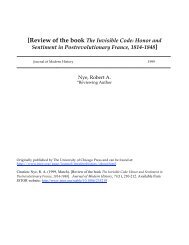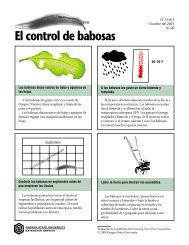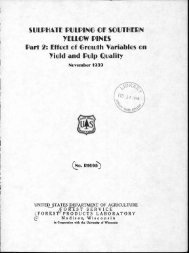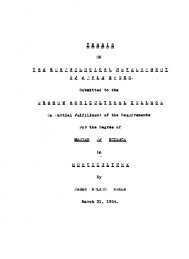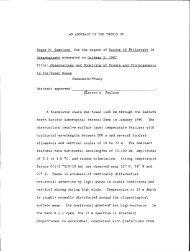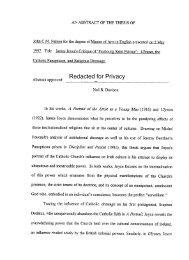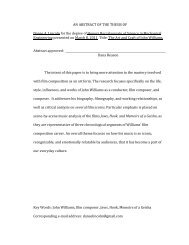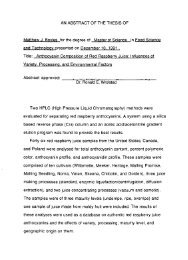AN ABSTRACT OF THE DISSERTATION OF Brigitte Gaal Cluver for ...
AN ABSTRACT OF THE DISSERTATION OF Brigitte Gaal Cluver for ...
AN ABSTRACT OF THE DISSERTATION OF Brigitte Gaal Cluver for ...
You also want an ePaper? Increase the reach of your titles
YUMPU automatically turns print PDFs into web optimized ePapers that Google loves.
of a gift, a consumer may communicate a message to the gift giver. Be<strong>for</strong>e disposing<br />
of the gift, in<strong>for</strong>mants in Rucker et al.’s (1992) study claimed to assess their<br />
relationship with the giver, noting that disposition my communicate disrespect to the<br />
giver. In fact, Sherry et al. (1992) found that subjects were less likely to dispose of<br />
gifts when the gifts were from immediate kin, someone important, someone whose<br />
feeling might be hurt as a result of disposition, or when the gifts were especially<br />
thoughtful. Not only can gift disposition communicate a negative message to the<br />
giver, but it can also communicate negative aspects of the self, such as being selfish,<br />
unkind, thoughtless, or unappreciative (Sherry et al., 1992). A gift represents the<br />
relationship an individual has with the gift-giver, and there<strong>for</strong>e the disposal of a gift<br />
may also represents and communicates the individual’s feelings about the<br />
relationship. In fact, in<strong>for</strong>mants in Sherry et al.’s (1992) study fantasized about<br />
destroying unwanted gifts as a means of revenge on the gift giver. By profaning the<br />
gift, they profane the relationship.<br />
Disposition to Preserve a Relationship<br />
Disposition behavior may serve as a tool to preserve a relationship. For<br />
example, when McAlexander (1991) studied disposition behavior within the context of<br />
divorce he found that in cases where in<strong>for</strong>mants did not wish to dissolve their marital<br />
relationships, they made disposal decision that would maintain, rather than sever,<br />
their relationships with their ex-spouses. An individual may hold onto possessions<br />
that he/she believes the ex-spouse will need in the future, in hopes that the ex-<br />
spouse’s need <strong>for</strong> the item will bring future interaction. Or, an individual may willingly<br />
pass items on to an ex-spouse in hopes of maintaining a pleasant relationship.<br />
39



